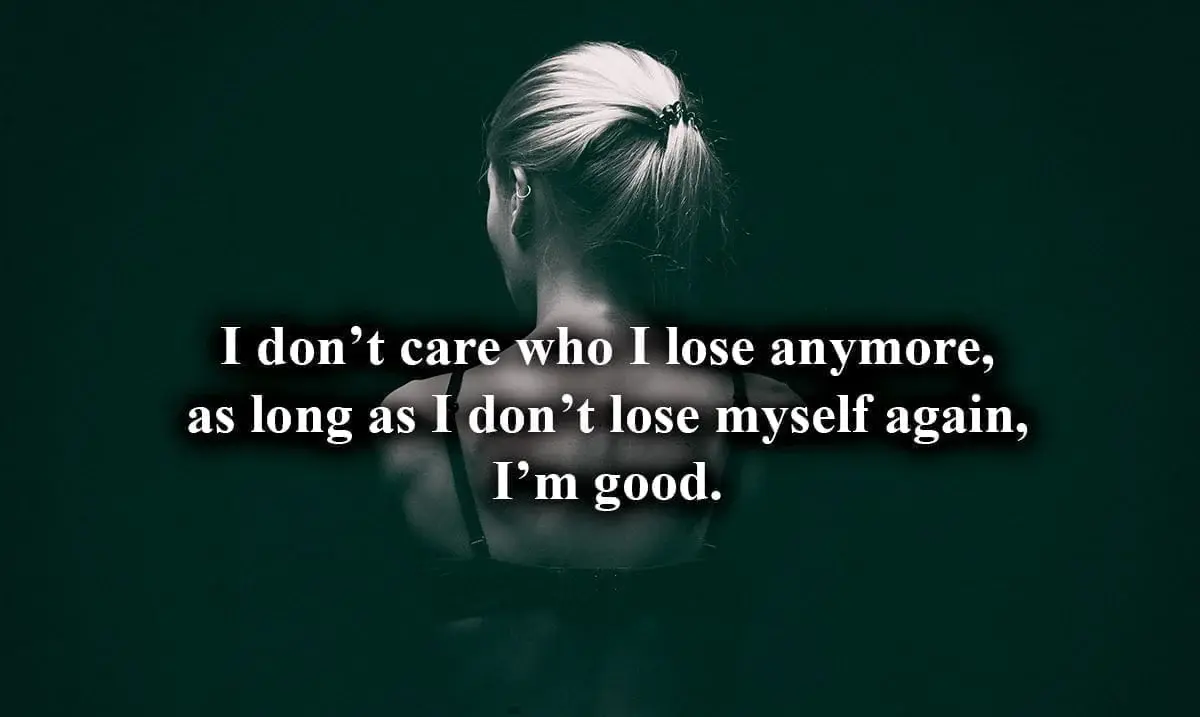Losing Something as a Blessing: Finding the Silver Lining
In life, we often encounter situations where we lose something valuable – be it a job, a relationship, or a material possession. While these losses can be painful, there’s an age-old wisdom that suggests losing something as a blessing can be a reality. This article explores how setbacks and losses can sometimes lead to unexpected positive outcomes, personal growth, and new opportunities.
Understanding the Concept of Losing Something as a Blessing
The idea of losing something as a blessing might seem counterintuitive at first. After all, loss is generally associated with negative emotions like sadness, anger, or disappointment. However, this perspective encourages us to look beyond the immediate pain and consider the potential long-term benefits that may arise from our losses.
Key aspects of viewing loss as a blessing:
- Recognizing that change, even when painful, can lead to growth
- Understanding that losses can create space for new opportunities
- Appreciating the lessons learned from difficult experiences
- Developing resilience and adaptability in the face of adversity
The Psychology Behind Losing Something as a Blessing
Psychologists have long studied the human capacity to find meaning in difficult experiences. This ability is closely tied to the concept of losing something as a blessing. Research has shown that individuals who can reframe negative events in a positive light often demonstrate greater resilience and overall life satisfaction.
Cognitive reframing and loss
Cognitive reframing is a psychological technique that involves changing one’s perspective on a situation. When applied to loss, it can help individuals see the potential blessings hidden within their setbacks. This shift in mindset is crucial for transforming the experience of loss into an opportunity for growth and positive change.
Common Scenarios of Losing Something as a Blessing
Let’s explore some common life situations where the concept of losing something as a blessing can apply:
1. Job Loss
Losing a job can be a devastating experience, but it can also open doors to new career paths and personal growth.
Potential blessings from job loss:
- Opportunity to reassess career goals and priorities
- Time to develop new skills or pursue further education
- Chance to start a business or explore entrepreneurship
- Possibility of finding a more fulfilling or better-paying job
2. End of a Relationship
While the end of a romantic relationship or friendship can be painful, it can also lead to personal growth and new connections.
Blessings that may come from a relationship ending:
- Freedom to focus on personal growth and self-improvement
- Opportunity to meet new people and form healthier relationships
- Time for self-reflection and understanding of one’s needs and values
- Chance to pursue individual goals and aspirations
3. Loss of Material Possessions
Losing material possessions, whether through theft, natural disasters, or other circumstances, can be distressing. However, it can also lead to a reassessment of priorities and values.
Potential blessings from losing material possessions:
- Opportunity to declutter and simplify one’s life
- Appreciation for non-material aspects of life
- Development of resilience and adaptability
- Chance to rebuild with more intentionality and purpose
The Role of Perspective in Losing Something as a Blessing
One’s perspective plays a crucial role in whether a loss can be viewed as a blessing. Developing a positive outlook and the ability to see opportunities in challenges is key to embracing the concept of losing something as a blessing.
Tips for cultivating a positive perspective:
- Practice gratitude daily
- Focus on what you can control
- Look for lessons in difficult experiences
- Surround yourself with supportive people
- Engage in activities that promote mental well-being
Historical Examples of Losing Something as a Blessing
Throughout history, there have been numerous examples of individuals and societies turning losses into blessings. These stories serve as inspiration and demonstrate the power of resilience and adaptability.
Notable historical examples:
- The invention of penicillin: Alexander Fleming’s accidental contamination of a petri dish led to the discovery of penicillin, revolutionizing medicine.
- The Great Fire of London: While devastating at the time, the fire led to improved city planning and building regulations, ultimately creating a safer and more organized London.
- Steve Jobs leaving Apple: His departure from Apple in 1985 allowed him to explore new ventures, leading to the creation of Pixar and his eventual return to Apple with fresh ideas.
The Process of Turning Loss into a Blessing
Transforming a loss into a blessing is not always an easy or quick process. It often requires time, reflection, and intentional effort. Here’s a step-by-step guide to help navigate this journey:
- Acknowledge the loss: Allow yourself to feel and process the emotions associated with the loss.
- Reflect on the situation: Take time to consider what led to the loss and what you can learn from it.
- Identify potential opportunities: Look for ways the loss might open doors to new experiences or growth.
- Set new goals: Use the loss as a catalyst to reassess your priorities and set new objectives.
- Take action: Start working towards your new goals, even if with small steps.
- Practice gratitude: Focus on what you still have and the positive aspects of your life.
- Share your experience: Helping others who have experienced similar losses can be healing and reinforcing.
The Impact of Culture on Perceiving Loss as a Blessing
Cultural background can significantly influence how individuals perceive and cope with loss. Some cultures have deeply ingrained philosophies that align closely with the concept of losing something as a blessing.
Cultural perspectives on loss and blessing:
- Eastern philosophies: Many Eastern traditions, such as Buddhism and Taoism, emphasize the impermanence of all things and the potential for growth through loss.
- Indigenous wisdom: Many indigenous cultures have teachings that highlight the interconnectedness of all experiences, viewing both gains and losses as part of a greater cycle.
- Western resilience narratives: While traditionally focused on individual achievement, Western cultures are increasingly embracing narratives of resilience and growth through adversity.
Scientific Research on Losing Something as a Blessing
Recent scientific studies have begun to explore the psychological and physiological benefits of finding positive meaning in loss. This research provides empirical support for the age-old wisdom of losing something as a blessing.
Key research findings:
- Post-traumatic growth: Studies have shown that many individuals experience personal growth and positive life changes following traumatic events or significant losses.
- Neuroplasticity: Research on brain plasticity suggests that adapting to loss can create new neural pathways, potentially enhancing cognitive flexibility and resilience.
- Stress-related growth: Some studies indicate that moderate levels of stress, such as those experienced during loss, can lead to improved coping skills and personal development.
Practical Strategies for Embracing Loss as a Blessing
While understanding the concept of losing something as a blessing is important, putting it into practice can be challenging. Here are some practical strategies to help embrace this mindset:
- Journaling: Write about your loss and explore potential positive outcomes or lessons learned.
- Mindfulness meditation: Practice being present and accepting of your current circumstances without judgment.
- Cognitive restructuring: Challenge negative thoughts about the loss and try to reframe them in a more positive light.
- Seek support: Connect with others who have experienced similar losses and learn from their coping strategies.
- Volunteer or help others: Giving back can provide perspective and a sense of purpose during difficult times.
- Set new challenges: Use the loss as motivation to pursue new goals or take on new responsibilities.
- Practice self-compassion: Be kind to yourself as you navigate the process of healing and growth.
The Role of Time in Perceiving Loss as a Blessing
It’s important to recognize that seeing a loss as a blessing often requires the passage of time. Immediately after a loss, it’s natural and healthy to experience grief and other difficult emotions. The perspective of losing something as a blessing typically emerges as we gain distance from the event and can reflect on its impact more objectively.
Stages of perceiving loss as a blessing:
- Initial shock and grief
- Gradual acceptance of the loss
- Reflection on the experience
- Recognition of potential positive outcomes
- Integration of the loss into one’s life narrative
- Appreciation for the growth and change that resulted from the loss
Challenges in Viewing Loss as a Blessing
While the concept of losing something as a blessing can be powerful and transformative, it’s not without its challenges. It’s important to acknowledge these difficulties and approach the process with patience and self-compassion.
Common challenges:
- Grief and emotional pain: These feelings are natural and need to be processed before one can see the potential blessings.
- Societal pressure: Some may feel guilty or pressured to “move on” or find the positive too quickly.
- Magnitude of the loss: Certain losses, such as the death of a loved one, may be particularly difficult to frame as a blessing.
- Personal beliefs: Some individuals may struggle with the concept due to their personal or religious beliefs about suffering and loss.
Conclusion
Viewing loss as a blessing involves developing resilience and maintaining a positive outlook. Though it may take time, embracing this perspective can lead to unexpected growth and opportunities. By being patient and open to future possibilities, you can transform setbacks into meaningful experiences and enrich your life.







